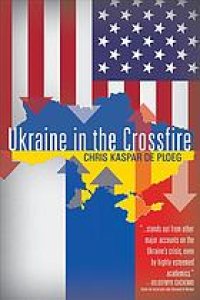- Tags: Ukraine -- Politics and government -- 1991-, Ukraine -- Foreign relations -- Western countries, Western countries -- Foreign relations -- Ukraine, Ukraine -- History -- Euromaidan Protests 2013-2014, Political violence -- Ukraine -- History -- 21st century, Nationalism -- Ukraine -- History -- 21st century, Donets Basin (Ukraine and Russia) -- History Military -- 21st century, Russia (Federation) -- Foreign relations -- Western countries, Western countries -- Foreign relations -- Russia (Federation), H
- Year: 2017
- Publisher: Clarity Press
- City: Donets Basin (Ukraine and Russia), Europe--Donets Basin., Russia (Federation), Russia (Federation)--
- Language: English
-
pdf
"Ukraine in the Crossfire tackles the importance of ultranationalist violence during and after the EuroMaidan movement, and documents how many of these groups are heirs to former Nazi-collaborators. It shows how the Ukrainian state has seized on the ultranationalist war-rhetoric to serve its own agenda, clamping down on civil liberties on a scale unprecedented since Ukrainian independence. De Ploeg argues that Kiev itself has been the biggest obstacle to peace in Donbass, with multiple leaks suggesting that Washington is using its financial leverage to push a pro-war line in Ukraine. With the nation's eyes turned towards Russia, the EU and IMF have successfully pressured Ukraine into adopting far-reaching austerity programs, while oligarchic looting of state assets and massive tax-avoidance facilitated by Western states continue unabated. De Ploeg documents the local roots of the Donbass rebellion, the overwhelming popularity of Crimea's secession, and shows that support for Ukraine's pro-western turn remains far from unanimous, with large swathes of Ukraine's Russophone population opting out of the political process. Nevertheless, De Ploeg argues, the pro-Western and pro-Russian camps are often similar: neoliberal, authoritarian, nationalist and heavily dependent on foreign support. In a wider exploration of Russo-Western relations, he examines similarities between the contemporary Russian state and its NATO counterparts, showing how the two power blocs have collaborated in some of their worst violent excesses. A far cry from civilizational or ideological clashes, De Ploeg argues that the current tensions flow from NATO's military dominance and aggressive posture, both globally and within post-Soviet space, where Russia seeks to defend the status-quo"--Provided by publisher. Read more...
